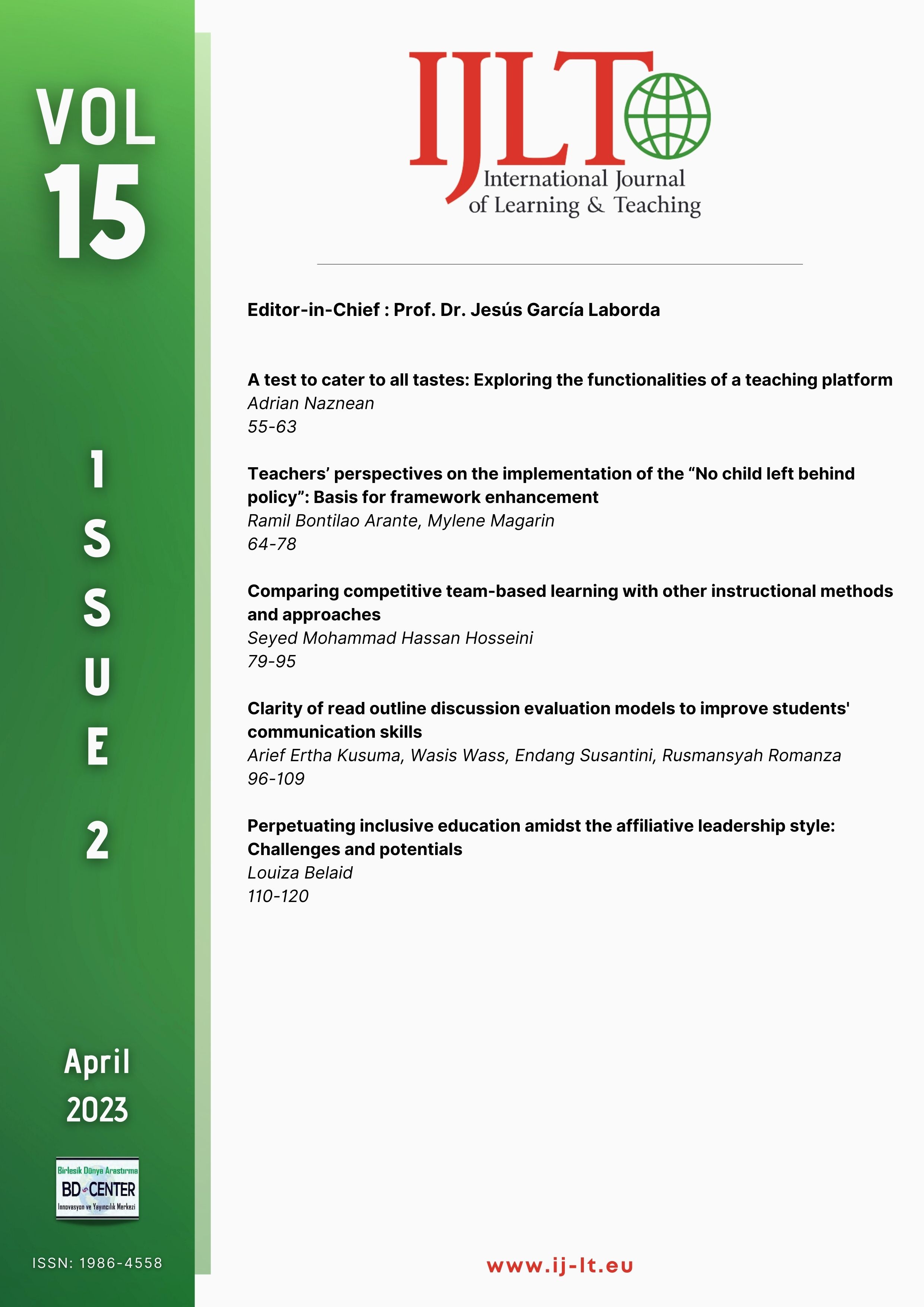Comparing competitive team-based learning with other instructional methods and approaches
Main Article Content
Abstract
Having introduced Competitive Team-Based Learning (CTBL), this paper presents a cogent and critical analysis and comparison of CTBL with other popular methods and approaches in the arena of Education in general and Language Teaching in particular, in terms of their distinguishing features and characteristics. Among such methods and approaches are Communicative Language Teaching (CLT), Collaborative Learning (ColL), Interactive Learning (IntL), and Cooperative Learning (CL)/methods which are appreciated particularly in the U.S. and in the West. A synthesis of the distinguishing drawbacks of the comparison methods and approaches is considered in this article. The article also explicates how CTBL, this researcher’s educational innovation, which has been formulated based on his edu-political theories in the last analysis, is an approach to human security and prosperity, and world peace. This article would contribute to making a sound decision on implementing CTBL in the arena of Language Teaching/Education for the ultimate goal of peace-making and more compassionate civilization building.
Keywords: Competitive team-based learning; edu-political theories; interactive learning; cooperative learning; collaborative learning
Downloads
Article Details

This work is licensed under a Creative Commons Attribution-NonCommercial-NoDerivatives 4.0 International License.
Authors who publish with this journal agree to the following terms:
- Authors retain copyright and grant the journal right of first publication with the work simultaneously licensed under a Creative Commons Attribution License that allows others to share the work with an acknowledgement of the work's authorship and initial publication in this journal.
- Authors are able to enter into separate, additional contractual arrangements for the non-exclusive distribution of the journal's published version of the work (e.g., post it to an institutional repository or publish it in a book), with an acknowledgement of its initial publication in this journal.
- Authors are permitted and encouraged to post their work online (e.g., in institutional repositories or on their website) prior to and during the submission process, as it can lead to productive exchanges, as well as earlier and greater citation of published work (SeeThe Effect of Open Access).
